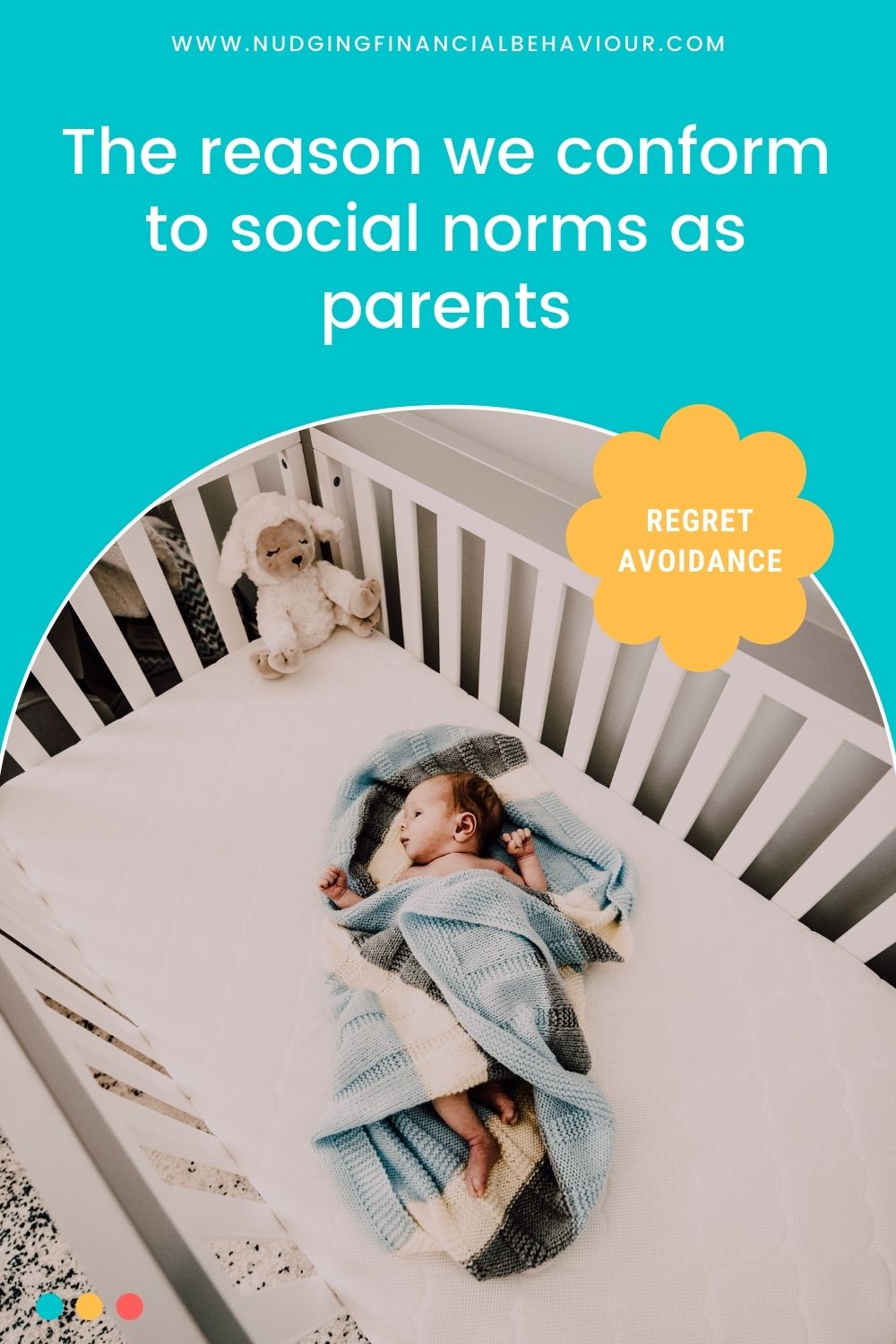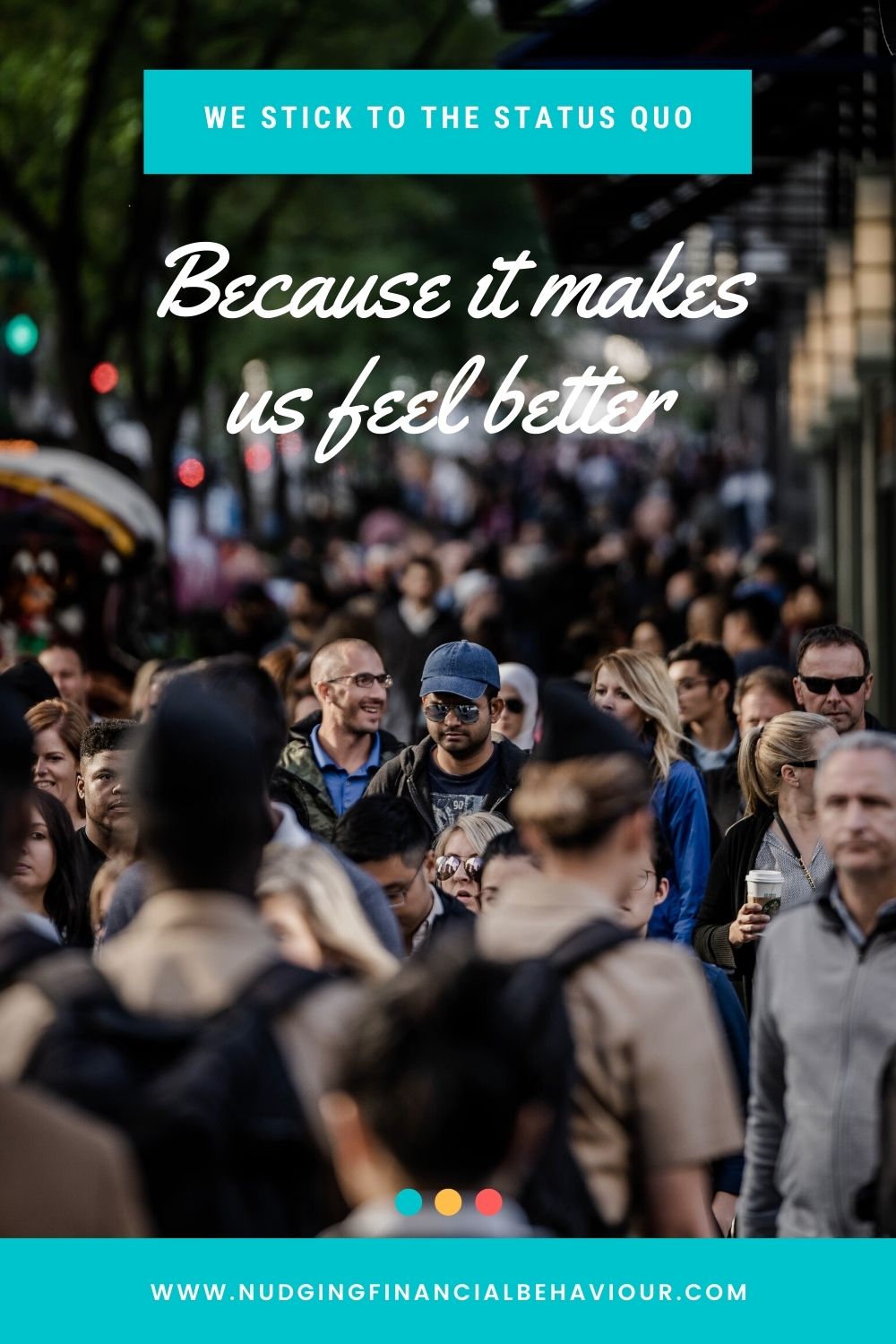Regret avoidance is one of those biases in behavioral finance that doesn’t need much of an introduction. There’s no need to define regret or define avoidance, the meaning is obvious in the name. But, while it’s simple to understand, the examples of regret avoidance should be taken seriously. Read further to see why it all makes sense, yet makes no sense at all, all at the same time.
If you’ve ever regretted doing something, you’re human. If you haven’t, this is perhaps not the right blog for you. But if you’re reasonably normal, you’ll know that the feeling of regret is unpleasant and one that we’d rather avoid at all costs.
Imagine you buy a lottery ticket every week and always pick the identical sequence of numbers. One week, you decide to try some different numbers. To your dismay, your standard sequence of numbers wins the lottery; the one week you didn’t pick those numbers! Disappointment is an understatement of what you might feel at that moment. Even though both sets of numbers had an equal probability of winning, you’d feel the regret of not going with the other. Thus, avoiding regret and regret theory influences the decisions we make, and we pick the same numbers every week.

In 1988, William Samuelson and Richard Zeckhauser discussed an example of this phenomenon. They created the scenario of a parent who needs to go to the shop and has a baby asleep in its crib at home. A parent would never consider leaving their sleeping baby alone at home while they quickly went to the shops. In the improbable likelihood that the baby would be killed in a fire, the parent would feel extreme guilt and regret over their decision. However, such parents would hardly hesitate to take the baby with them in the car, albeit the risk of an accident in the car being of a much higher magnitude than a house on fire. The associated guilt of a car accident would be substantially less, however. Thus, avoiding regret also pushes us to conform to social norms or the status quo.
In 1988, William Samuelson and Richard Zeckhauser discussed an example of this phenomenon. They created the scenario of a parent who needs to go to the shop and has a baby asleep in its crib at home. A parent would never consider leaving their sleeping baby alone at home while they quickly went to the shops. In the improbable likelihood that the baby would be killed in a fire, the parent would feel extreme guilt and regret over their decision. However, such parents would hardly hesitate to take the baby with them in the car, albeit the risk of an accident in the car being of a much higher magnitude than a house on fire. The associated guilt of a car accident would be substantially less, however. Thus, avoiding regret also pushes us to conform to social norms or the status quo.

Regret is the feeling of having made the wrong decision. We can apply this to many facets of our lives. Doesn’t matter how we slice it, it’s not a nice feeling. Especially when we start talking about finance and money.
Consider how regret avoidance works in an investing scenario: two investors and Amazon shares. Investor A considered buying Amazon shares 10 years ago (when the share price was around $140), but didn’t. Investor B was already holding Amazon shares 10 years ago, but sold them in that year. Ten years later and we know how the story ends. Amazon’s share price is at $3500, equating to a compound annual return of 38%. Which investor do you think is likely to feel more regret?
Considered objectively, the two situations are identical. Both Investor A and Investor B were unlucky and made the wrong choice and are out of pocket by the same amount. The only difference is that Investor B already held the shares in Amazon. Despite the similarities, Investor B is likely to be experiencing more regret as he/she made an active decision to sell. Investor A made a passive decision not to buy and thus personifies the majority of people who didn’t buy the shares. Whereas Investor B represents the exception. Thus, whoever does not follow the crowd experiences more regret.
Hopefully you’re starting to see how our behavioral biases are all interconnected? We avoid regret by conforming to social norms or the status quo. That’s why default options work. That’s why herding behaviour takes over. That’s where loss aversion thrives. I can keep on going… But while some might say there is safety in numbers, it can just as easily work against you.
Anyone who thinks there’s safety in numbers hasn’t looked at the stock market pages.
Also – it’s not necessarily always the person who acts that feels more regret though. Sometimes, not acting is the exception. Consider the stories you hear after a plane crash about that one unlucky person who was originally going to fly a day later, but for some reason changed his flight at the last minute. Because that passenger is the exception, we feel more sympathy for them than for the other ‘normal’ passengers who were originally booked on that flight.
Human avoidance psychology is strange, right? All these examples of regret avoidance keep showing us that.

Also – it’s not necessarily always the person who acts that feels more regret though. Sometimes, not acting is the exception. Consider the stories you hear after a plane crash about that one unlucky person who was originally going to fly a day later, but for some reason changed his flight at the last minute. Because that passenger is the exception, we feel more sympathy for them than for the other ‘normal’ passengers who were originally booked on that flight.
Human avoidance psychology is strange, right? All these examples of regret avoidance keep showing us that.

A final thing to consider with regret avoidance is that our fear of regret is magnified when we hear about ‘one time only’ or ‘last chance’ offers. If you never cared for a shelf divider before, why would you want to buy one now? It’s illogical.
#FOMO is real! Share on X
But – ‘last chances’ unnerve us. Let’s say that you’ve always wanted to climb to Everest Base Camp (me!!!) Reports are coming out that the terrain is getting damaged. Rumours start spreading that the route might only be open to limited numbers going forward and only those who will make a summit attempt (not me!). This might be your last chance to see Base Camp. With this thought racing through your head you give in and buy an over-priced plane ticket to Nepal.
The fear of regret tricked you into thinking this was a one-time offer, when in reality, the Nepalese government is unlikely to halt the generation of royalty income from climbers. Tourism on Everest isn’t about to end. But you were overwhelmed by your fear of regret.
But – ‘last chances’ unnerve us. Let’s say that you’ve always wanted to climb to Everest Base Camp (me!!!) Reports are coming out that the terrain is getting damaged. Rumours start spreading that the route might only be open to limited numbers going forward and only those who will make a summit attempt (not me!). This might be your last chance to see Base Camp. With this thought racing through your head you give in and buy an over-priced plane ticket to Nepal.
The fear of regret tricked you into thinking this was a one-time offer, when in reality, the Nepalese government is unlikely to halt the generation of royalty income from climbers. Tourism on Everest isn’t about to end. But you were overwhelmed by your fear of regret.

In short, we do everything we can to avoid any regrettable decisions. This then leads us to letting our past decisions influence our present decisions. And that’s when a whole bunch of other biases start creeping in.
While the examples of regret avoidance are plentiful, there’s a common theme in that we don’t like the feeling and we do whatever it takes to avoid it. Thus, we stick to the status quo because it feels safer. There’s not really much I can say to tell you how to overcome regret aversion bias because I completely understand! But do try and recognise when this behavioral bias is influencing your investment decisions (the one time I’ll punt technical analysis).
It’s more important to recognise when these past decisions influence future decisions (or indecision). But that’s a story for next time.

While the examples of regret avoidance are plentiful, there’s a common theme in that we don’t like the feeling and we do whatever it takes to avoid it. Thus, we stick to the status quo because it feels safer. There’s not really much I can say to tell you how to overcome regret aversion bias because I completely understand! But do try and recognise when this behavioral bias is influencing your investment decisions (the one time I’ll punt technical analysis).

It’s more important to recognise when these past decisions influence future decisions (or indecision). But that’s a story for next time.
Let us know in the comments below.
Let us know in the comments below.
I am passionate about helping people understand their behaviour with money and gently nudging them to spend less and save more. I have several academic journal publications on investor behaviour, financial literacy and personal finance, and perfectly understand the biases that influence how we manage our money. This blog is where I break down those ideas and share my thinking. I’ll try to cover relevant topics that my readers bring to my attention. Please read, share, and comment. That’s how we spread knowledge and help both ourselves and others to become in control of our financial situations.

Dr Gizelle Willows
PhD and NRF-rating in Behavioural Finance
Receive gentle nudges from us:
[user_registration_form id=”8641″]
“Essentially, all models are wrong, but some are useful.” – George E.P. Box
